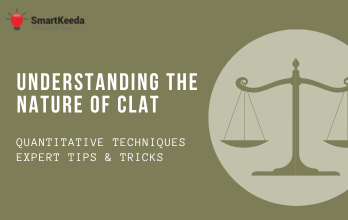
The Institute of Banking Personnel Selection (IBPS) Probationary Officer (PO) Exam is a highly competitive examination conducted annually in India to recruit candidates for the position of Probationary Officers in various public sector banks. This examination plays a crucial role in shaping the careers of aspirants seeking a job in the banking sector.
Understanding the Preliminary Stage: The Preliminary Stage of the IBPS PO (Institute of Banking Personnel Selection Probationary Officer) Exam is the first hurdle that candidates need to clear in order to progress to the next stage of the selection process. The Preliminary Exam consists of three sections, and each section assesses specific skills:
- English Language: This section evaluates a candidate,s proficiency in the English language, including reading comprehension, vocabulary, and grammar.
- Quantitative Aptitude: This section tests a candidate's mathematical and numerical ability. Questions involve topics such as arithmetic, data interpretation, and quantitative analysis.
- Reasoning Ability: This section assesses logical and analytical reasoning skills. It includes questions on puzzles, coding-decoding, seating arrangement, and more.
Time Allocation - Prelims vs. Mains
Time allocation is a crucial aspect of preparing for both the IBPS PO Preliminary and Mains Exams. Properly managing your time during the exam is essential to maximize your performance and score. Let’s discuss each of them in detail:- IBPS PO Prelims: The total time you will get for IBPS PO Prelims is 60 minutes which will be 20 minutes for each section.
- IBPS PO Mains: The time which one gets for main exam is given below:
| Sr. No. | Name of Tests (NOT BY SEQUENCE) | No. of Questions | Maximum Marks | Medium of Exam | Time allotted for each test (Separately timed) |
| 1 | Reasoning & Computer Aptitude | 45 | 60 | English & Hindi | 60 minutes |
| 2 | General/ Economy/ Banking Awareness | 40 | 40 | English & Hindi | 35 minutes |
| 3 | English Language | 35 | 40 | English | 40 minutes |
| 4 | Data Analysis & Interpretation | 35 | 60 | English & Hindi | 45 minutes |
| - | TOTAL: | 155 | 200 | - | 3 hours |
| 5 | English Language (Letter Writing & Essay) | 2 | 25 | English | 30 minutes |
| Grand Total | 225 | - | 3 Hours 30 minutes | ||
Question Types and Difficulty Levels
Let’s do comparison of question types and difficulty levels for both the IBPS PO Prelims and Mains exams:- IBPS PO Preliminary (Pre) Exam: The IBPS PO Prelims exam is designed to be of moderate difficulty. The questions are intended to assess the candidate's basic knowledge and problem-solving abilities. Time management is crucial as candidates have a limited time to solve each section.
- IBPS PO Mains Exam: The IBPS PO Mains exam is significantly more challenging than the Prelims. It tests the candidate's in-depth knowledge, analytical skills, and ability to handle complex problems. The Descriptive Writing section requires candidates to express their thoughts clearly and concisely.
- In summary, the IBPS PO Prelims primarily assesses a candidate's basic aptitude and is of moderate difficulty, while the Mains exam delves deeper into their knowledge and analytical skills, making it considerably more challenging.
Syllabus Variation: Prelims and Mains
The syllabus for the IBPS PO Preliminary (Pre) and Mains exams varies in terms of depth and complexity. Here's a breakdown of the syllabus variation between these two stages:- IBPS PO Pre Exam Syllabus: For English, topics like Reading Comprehension, Cloze Test, Error Detection, Sentence Rearrangement, etc. are some of the common topics.
- For Reasoning, Syllogism, Inequality, Coding-Decoding, Blood Relations, Puzzles (Linear Arrangement, Circular Arrangement, Floor-based, etc.), Seating Arrangements, etc. are some important topics.
- For Quant, topics like Simplification, Data Interpretation (Bar Graphs, Line Charts, Pie Charts, Tabulation), Number Series, Quadratic Equations, Arithmetic (Profit & Loss, Time & Work, Simple & Compound Interest, Percentage, Ratio & Proportion) completes the syllabus.
- IBPS PO Mains Exam Syllabus: Similarly, for mains exam of English section, prepare reading Comprehension (with higher complexity), Paragraph Completion, Error Detection (including more complex sentences), Descriptive Writing (Letter & Essay).
- Data Analysis & Interpretation: Cover Data Interpretation (Table, Pie Chart, Bar Graph, Line Graph, etc.), Data Sufficiency, Mathematical/Statistical Problems (Ratio & Proportion, Percentage, Number Systems, Mensuration) for preparation.
- Reasoning & Computer Aptitude: Topics like Complex Puzzles (Advanced-level puzzles with multiple variables), Seating Arrangements (Complex arrangements), Logical Reasoning, Computer Awareness (Basic computer knowledge and terms) covers the syllabus.
- General/Economy/Banking Awareness: Study Current Affairs (National and International), Banking & Financial Awareness (Banking terminology, RBI functions, etc.), General Knowledge (Indian Constitution, History, Geography, etc.)
- English Descriptive Paper: Topics like Letter Writing (Formal and Informal) and Essay Writing (on current socio-economic issues) completes the syllabus.
Focus on Speed in Prelims, Depth in Mains
It is an excellent strategy for preparing for the IBPS PO Preliminary (Pre) and Mains exams. In the Preliminary exam, you have a limited amount of time to answer a relatively large number of questions in each section whereas the Mains exam is more comprehensive and tests your in-depth knowledge of various subjects.Strategy and Preparation Tips for Prelims
Preparing for the IBPS PO Preliminary (Pre) exam requires a focused and systematic approach. Here are some strategies and preparation tips to help you excel in the Prelims:- Familiarize yourself with the exam pattern, including the number of sections, time allocation, and marking scheme. Develop a realistic and structured study plan that allocates sufficient time to each section.
- Regular practice is a key. Solve a variety of questions from each section to improve your speed and accuracy. Take mock test from Smartkeeda which are the pioneer in this field and can be access at https://testzone.smartkeeda.com/test/dashboard/ibps-po-pre/7.
- Practice relaxation techniques like deep breathing and meditation to manage exam-related stress. Get adequate sleep and maintain a healthy lifestyle during your preparation.
Strategy and Preparation Tips for Mains
Preparing for the IBPS PO Mains exam requires a more comprehensive and in-depth approach compared to the Preliminary (Pre) exam. Here are some strategies and preparation tips to help you succeed in the Mains:- Create a detailed study plan that covers all sections and topics systematically. Allocate sufficient time to each section based on your strengths and weaknesses.
- Mains exams require a deeper understanding of concepts. Concentrate on building a strong foundation in each subject. Invest time in studying complex topics and practicing advanced-level questions.
- DI is a critical section. Practice different types of data interpretation questions, including tables, bar graphs, pie charts, and line graphs. Practice DI in mock test which are easily available at https://testzone.smartkeeda.com/test/dashboard/ibps-po-mains/8.
Common Mistakes to Avoid
To improve your chances of success in the IBPS PO exams, it's essential to avoid common mistakes that candidates often make during preparation and while taking the exams. Here are some common mistakes to watch out for and avoid:- Failing to create a structured study plan can lead to inefficient preparation. Plan your study schedule, allocate time to each section, and set achievable goals.
- Mock tests are essential for exam readiness. Not taking enough mock tests can lead to poor time management and exam anxiety. Regularly practice with mock tests to simulate real exam conditions.
- Failing to consider the penalty for incorrect answers can lead to unnecessary loss of marks. If you're unsure about an answer, make an educated guess.
- Overestimating your abilities can lead to complacency, while underestimating your skills can erode your confidence. Stay realistic and motivated throughout your preparation .
- Letting exam-related stress and anxiety affect your performance is common. Practice relaxation techniques and mindfulness to manage stress.

Author : Shashi Garg
Hey, I am Shashi Garg, an aspiring writer, and a Passionate Wordsmith. I Prepared for banking exams for 1-1.5 years and also cleared some. I have been writing for a while now on a popular platform Quora. I feel excited about it because it allows me to share my opinions and experiences with the world. Every piece of information I shared in this post is based on my experiences.
FAQ’s
The IBPS PO exam is a competitive examination conducted by IBPS. The primary objective of this exam is to select candidates for the position of Probationary Officer (PO) in various public sector banks across the country. The reason behind 2 stage is mentioned below: The two-stage selection process allows for a more thorough evaluation of candidates' skills, knowledge, and suitability for the demanding role of a Probationary Officer in public sector banks. It helps banks identify well-rounded individuals who can handle the diverse responsibilities associated with the position.
The exam pattern for the IBPS PO Preliminary (Pre) and Mains exams differs significantly in terms of the number of sections, the depth of content, and the types of questions.
The questions in the IBPS PO Preliminary (Pre) and Mains exams differ significantly in terms of complexity and depth and their complexity has been discussed in the blog.
The syllabus for the IBPS PO Preliminary (Pre) and Mains exams varies significantly in terms of depth, coverage, and complexity.
Allocating your time for preparation between the IBPS PO Preliminary (Pre) and Mains exams should be based on several factors, including your current level of preparedness, strengths and weaknesses, and the time available before each exam.





